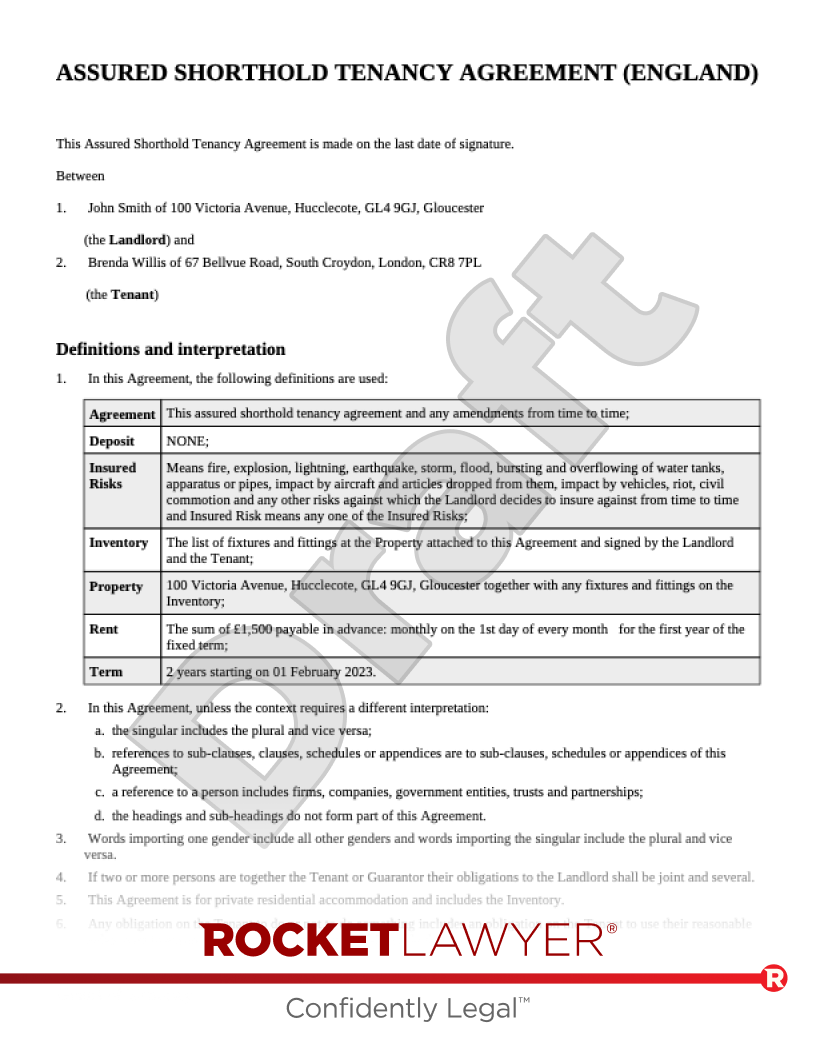Considerations
Once you have purchased the property, you will need to prepare for the letting, but where do you start? Things you should consider include:
-
are you letting the property on a short-term or long-term basis? This will determine the type of letting agreement you use
-
have you got an Energy Performance Certificate (EPC), comparing the property’s current and potential energy efficiency and carbon dioxide emissions? This is mandatory for the property being rented out and must be available before the property can be marketed
-
if the property uses has, have you got a gas safety certificate? It is a requirement that all gas equipment supplied at the property be installed and maintained by a competent engineer who is Gas Safe registered. Further, as a landlord, you must carry out gas safety checks every year
-
how will you be managing the property - will you do it yourself? Consider if you have the time and the know-how, if you are ready to deal with difficult tenants or if you will use a letting agent
Managing the property
If you don’t want to manage the property yourself, you will need to find a letting agent. They will take care of the property and deal directly with the tenant on your behalf. The main points to think about are:
-
the level of service the letting agent will provide
-
whether they are members of professional bodies – eg ARLA Propertymark (for letting agents), NAEA Propertymark (for estate agents) or safeagent
-
their fees and charges - it is usual for letting agents to charge between ten to twenty per cent of the monthly rental
-
whether they are reputable and recommended
Furnished or unfurnished?
As a landlord, you have the choice whether to let out the property furnished or unfurnished.
Making this decision needs careful consideration as a record (an Inventory) should be made of all contents and schedule of condition prepared in order to avoid any dispute at the end of the tenancy or misunderstanding. There are pros and cons to providing a furnished buy to let property:
The pros include:
-
a furnished property can be more inviting to a prospective tenant
-
you can obtain a higher rent for a furnished property
-
some tenants just want to walk into a fully furnished property and have no outlay themselves
-
it is easier to rent out a furnished property
The cons include:
-
furniture will need replacing after wear and tear
-
you must ensure that the furniture is safe
-
some prospective tenants want to design their own living space
-
it is an expensive outlay for you at the beginning of the tenancy
-
keeping track of the furniture and items you have is an ongoing task
If you bought the property with a sitting tenant
A sitting tenant (also known as a ‘tenant in situ‘) is a tenant who is renting a property that the owner (the tenant’s original landlord) decided to sell and that remains in the property after its sale. When purchasing the rental property, as the new landlord you take on the existing tenancy and you’re bound by the original tenancy agreement, just like the tenant is.
When purchasing the rental property, as the new landlord you take on the existing tenancy and you’re bound by the original tenancy agreement, just like the tenant is.
You may decide to:
-
continue the tenancy as before
-
try to evict the tenant or stop letting the property
-
make plans to renovate
If you decide to continue with the tenant, you can consider meeting with the tenant to ensure communication runs smoothly. When the sale is complete, you should inform the tenant of the change of landlord. This is known as a section 3 notice and you have two months to inform the tenant of your name and address. This is still the case even if the old landlord has informed them of the change.
You should also contact the relevant deposit protection scheme to change the details. If you decide to change to a different scheme you would need to provide the tenant with the relevant prescribed information.




